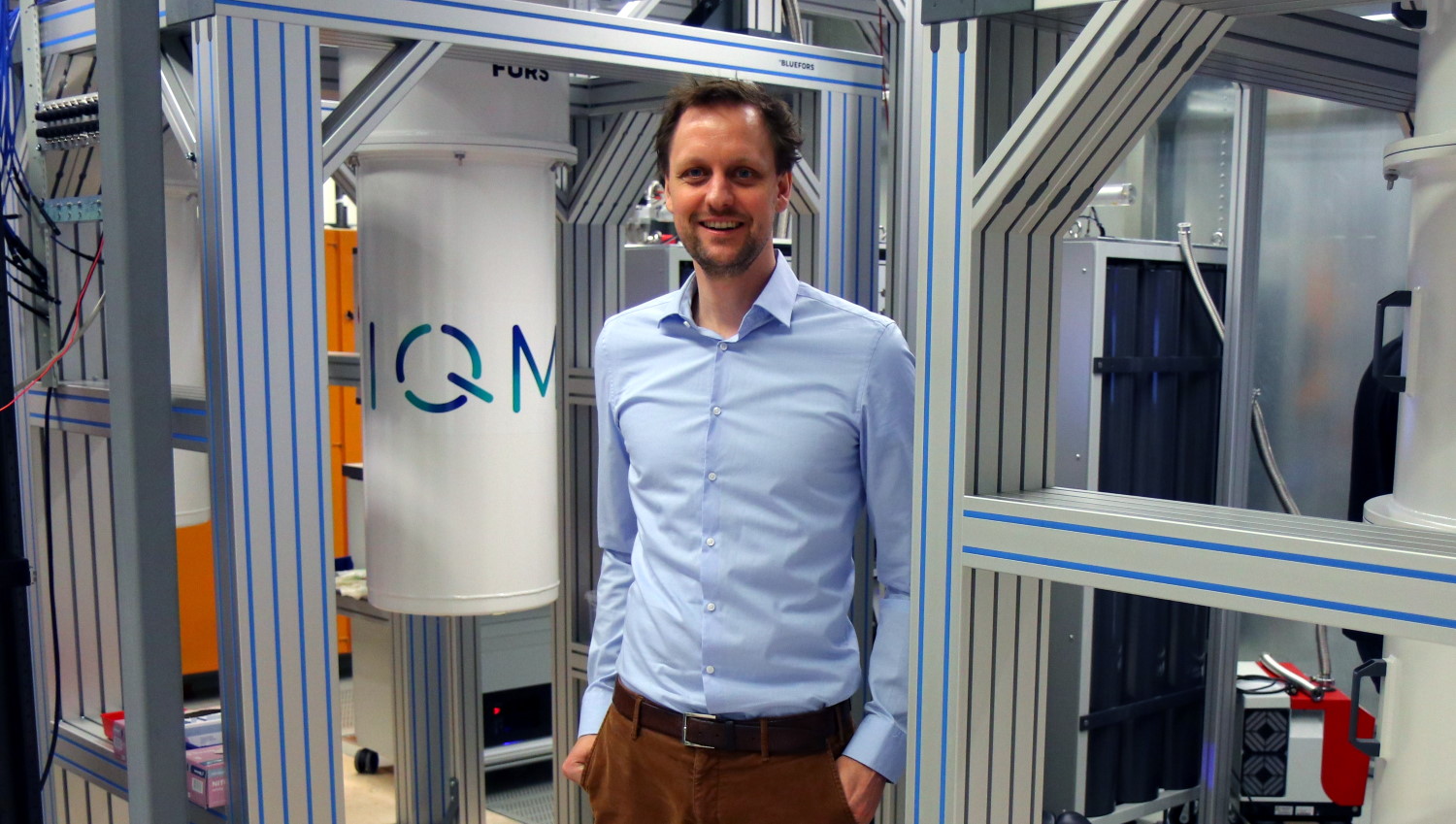So far, Google and IBM have ruled the headlines with their quantum computers. It seemed as if Germany and Europe will become dependent on the technology of these corporations. But something is about to change: The German government wants to commission at least two quantum computers. And science, start-ups and corporations want to join forces to catch up. Munich could also get a quantum computer and become center of gravity in this European endeavor.
By Wolfgang Kerler
This is the international version of a 1E9 article that was first published in German. You can find the original version here.
Perhaps the media hype generated by Google last autumn has pushed German politics even further. It was then that the company announced its quantum supremacy . For the first time, a quantum computer was supposed to have succeeded in solving a problem much faster than a classic computer could. In just 200 seconds, Google’s quantum processor Sycamore performed a calculation that would have overwhelmed any current supercomputer. It would have taken 10,000 years to solve this computing task, says Google.
This superior computing performance - until then only brainchild of theory - and the ability to process huge amounts of data much faster than conventional computers are due to the fact that quantum computers do not operate with bits as the smallest memory units. Instead, they work with quantum bits or qubits. And unlike bits, they can assume not only the values 0 and 1, but also the superposition states in between.
So far, however, it has not been possible to construct quantum computers with many qubits. Google’s Sycamore and IBM’s Q System One lead the world rankings with 53 each. For systems that are really universally applicable, it would probably take many times as much. Moreover, quantum computers are quite error-prone. So they are still in the experimental stage. But Google’s breakthrough has proven that progress is being made - and that quantum computers could deliver real added value in the near future.
The pharmaceutical industry and biotechnology could benefit because new molecules could be easily simulated on quantum computers. This would also help the car industry to develop better batteries. Wherever things need to be optimized - from traffic control in cities, to the management of financial portfolios, to terminal occupancy at airports - quantum computers could be used. Or, to create even better artificial intelligence using machine learning.
Do you want to leave this lucrative field to American IT groups or Chinese companies, which, according to their own statements, are also investing billions in the development of quantum computers? The answer from Europe is obviously no.
Two billion euros and at least two quantum computers
Although it has been certain for several months that IBM will set up a copy of its Q System One in Stuttgart - in cooperation with the Fraunhofer Gesellschaft - by early 2021, the first quantum computer developed entirely in Europe, which is expected to take a leading position in international comparison, is also currently being built. Under the project name OpenSuperQ, ten research institutions and companies are working on it. Their goal is a system with up to 100 qubits, which is to run in Jülich by the end of 2021. Now it looks as if Germany could get even more quantum computers.
This is because the German government is significantly increasing its funding for quantum technology. So far, it has planned 650 million euros for the current legislative period. But then came the corona pandemic - and the economic stimulus package to mitigate its economic consequences and make Germany fit for the future. And this includes the goal of making Germany the world leader in quantum technology, both economically and technologically. To this end, the German government is providing a further two billion euros - and „will immediately award the contract for the construction of at least two quantum computers to suitable consortia“.
The start-up IQM with locations in Finland and Germany would like to build one of these. For its CEO and founder Jan Goetz, the plans of the federal government are „a very strong and very good signal“, as he tells 1E9 in an interview. „In addition, we now see a serious interest from German industry, which has recognized the potential of quantum computers. We should therefore definitely take advantage of this momentum.“ Jan Goetz already has his eye on the ideal location for his quantum computer: Munich. IQM founded a subsidiary there at the beginning of the year.
Jan Goetz with IQM’s quantum computer. Copyright: IQMLarge companies that are potential users of quantum hardware and software have their headquarters or branches in the city: BMW, Airbus or insurance companies. In addition, there are many investors and a strong scientific community: the Max Planck Institute for Quantum Optics, various chairs at the Ludwig Maximilian University, and the Walter Meissner Institute for Low Temperature Research at the Technical University, which has many years of experience in the field of superconducting circuits, as used by IQM. Therefore, a first experimental prototype could be built there together with the start-up.
For professional use of a quantum computer, the Leibniz Supercomputing Centre in Garching near Munich (LRZ) is ready, which already has one of the most powerful supercomputers in the world, the SuperMUC-NG. „Since quantum computers are, in my opinion, a supplement to classical high-performance computers, the final computer should also be set up in a high-performance computing center,“ says Jan Goetz. "And there are such centers in Jülich, Stuttgart and Garching near Munich.
Dieter Kranzlmüller, Professor of Computer Science and Director of the LRZ, also considers Munich to be the ideal location for a quantum computer made in Europe. „It has everything a successful ecosystem needs. There is hardly any other place in the world that offers this,“ he says to 1E9. „But now we need the politics to get started.“
A European SpaceX for quantum computers?
Both Dieter Kranzlmüller and Jan Goetz hope that the German government will commission a quantum computer for Munich. And soon. Because the American competition could still be caught up. Or even overtaken. „The question is whether we should simply try to copy IBM and Google? Or whether we should not better pursue approaches that would allow us to overtake IBM and Google by making a very efficient technological leap,“ says Jan Goetz.
To achieve this, however, a joint effort is needed: European universities and research institutions, together with start-ups, must continue to drive the technology forward; industry, for example car, pharmaceutical or financial groups, must test the first applications in pilot projects. And the state should assume the role that NASA played in setting up the space start-up SpaceX, says Jan Goetz. „By this I mean that strong start-ups could get public contracts to grow and also use public infrastructure,“ he explains. „In the case of SpaceX, these were NASA’s launch pads.“
New start-ups could emerge around the European quantum computer(s), new opportunities could open up for top researchers from around the world, and the industry would have the chance to develop better products. „Hardware is just the beginning,“ says Dieter Kranzlmüller. Perhaps his LRZ will soon be able to cause an international sensation - because a quantum computer is being built there that will one day be able to compete with IBM or Google.
Picture: A rendering of IQM’s future quantum computer. Copyright: IQM
Don’t miss our digital event on June 30th at 4:00 p.m.!
How can Europe take a leading role in the development of quantum computers? And why is this important at all? This is what we will be discussing in an English edition of our event series Reclaim the Future! by 1E9 and the Future Forum by BMW Welt. Jan Goetz and Dieter Kranzlmüller are also present as speakers. All information about the event can be found here.


